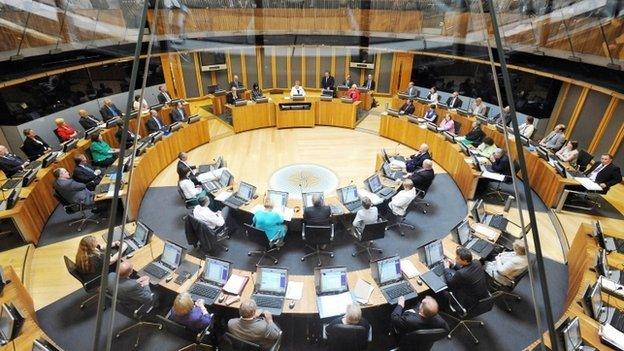Devolution should not be weakened, warns Carwyn Jones
- Published
Prof Richard Wyn Jones says the plan to clarify Welsh devolution has not been thought through
The first minister has warned he will not accept any attempt to weaken the powers of the assembly.
It comes after a report by academics branded UK government proposals to clarify devolution for Wales as "convoluted" and "unstable".
Carwyn Jones said he had warned UK ministers he would not back plans if they turn out to be "overly complex".
Welsh Secretary Stephen Crabb insisted the plans would give ministers in Cardiff Bay more power, not less.
The report, by the Wales Governance Centre, external at Cardiff University and the Constitution Unit at University College London, looked at proposals to set up a so-called reserved powers model of devolution, as in Scotland.
'Best interest'
Wales currently has a conferred powers model, which lists all the responsibilities the assembly has been granted by the UK government.
In Scotland, all policy areas are assumed to be the responsibility of the parliament in Edinburgh, unless specifically reserved by Westminster - such as foreign affairs and defence.

Carwyn Jones says the Wales Bill should not be 'complex' or restrict the assembly's powers
The Welsh government said it would be easier to understand how devolution works if Wales had a reserved powers model too.
It would also avoid legal tussles over the extent of the assembly's powers, ministers claim.
In a statement, Mr Jones said: "The people of Wales would not accept unworkable or overly complex legislation that's not in the best interest of Wales.
"I made this abundantly clear to the Secretary of State for Wales in our meeting last week. Any attempt to row-back on the current settlement will not be acceptable to them.
"As I've said before, if we are not satisfied that the Bill meets the needs of Wales, we will not support it.
"The challenge is there for the UK Government to produce a straightforward Bill that does not restrict the powers of the people of Wales and gains their support."
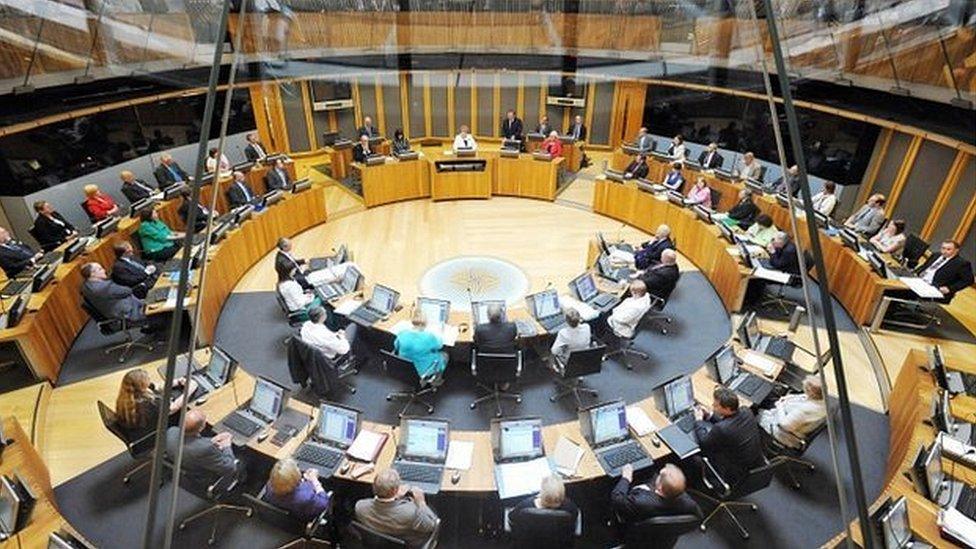
Debate over AMs' powers has been a constant theme since the assembly's creation in 1999
The report, unveiled on Thursday, said decisions about which powers are kept by Westminster should be based on "wider principles about how a devolved UK should work".
"Another ad hoc political bargain underpinned by short-term considerations will not produce a robust, stable and lasting settlement," it warns.
Prof Richard Wyn Jones from the Wales Governance Centre said: "The problem that we've identified with the proposals is that frankly the Wales Office haven't thought this through properly.
"They seem to be suggesting a model of devolution which is actually going to be convoluted rather than clear, which is going to be unstable rather than robust and which frankly doesn't really stand much of a chance of lasting very long."
Assembly Presiding Officer Dame Rosemary Butler said the report "chimes closely with my own vision for what a move to reserved powers should achieve - a clearer, more workable devolution settlement for the people of Wales".
'No man's land'
Welsh Secretary Stephen Crabb rejected the suggestion that the UK government wanted to take away power from the assembly as "just not true".
"As was demonstrated in the St David's Day agreement, we're giving really significant extra powers to Welsh Government and the Welsh Assembly," he said.
"We're bringing forward a law that doesn't just provide clarity about the existing devolution arrangements, it's actually adding extra powers and extra competencies to Welsh Government.
"So in future Welsh Government Ministers in Cardiff will be able to do more with their powers."
Plaid Cymru leader Leanne Wood warned the "sorry saga of Wales' devolution process cannot continue in this vein".
"Years after the publication of the Silk Reports, months after the St David's Day process concluded, our country is left in a constitutional 'no man's land'," she said.

Analysis by Vaughan Roderick, BBC Welsh affairs editor
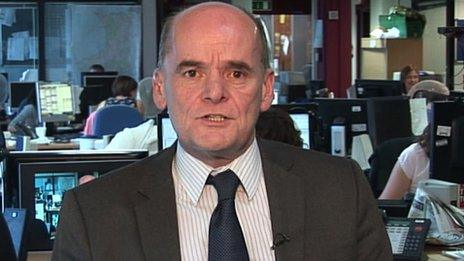
The academics' fears that the UK's latest devolution proposals won't provide a clear and lasting settlement for Wales are shared at the highest levels of the Welsh government.
Officials and ministers fear the proposals would actually weaken rather than strengthen the assembly's powers.
At the heart of the problem is the difficulty of crafting a lasting settlement while Wales and England share a common legal system - an issue the academics claim the Wales Office has failed to tackle in drawing up the proposals.
Privately, Welsh government sources say they regard the current proposals as unacceptable, while some AMs suggest the assembly should refuse its consent for the bill to be tabled in Westminster.
That is a situation both governments are desperate to avoid, since it would create something of a constitutional crisis on the brink of next year's assembly election.
- Published29 June 2015

- Published24 June 2015
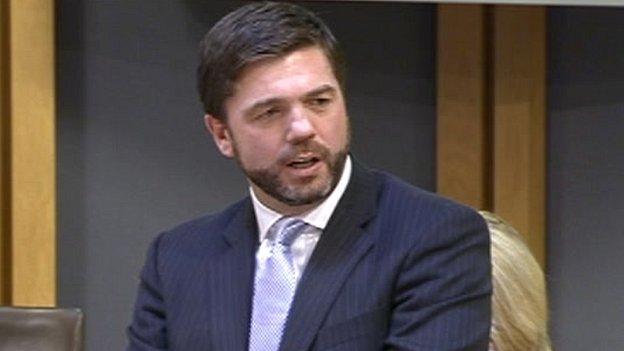
- Published5 June 2015

- Published27 May 2015
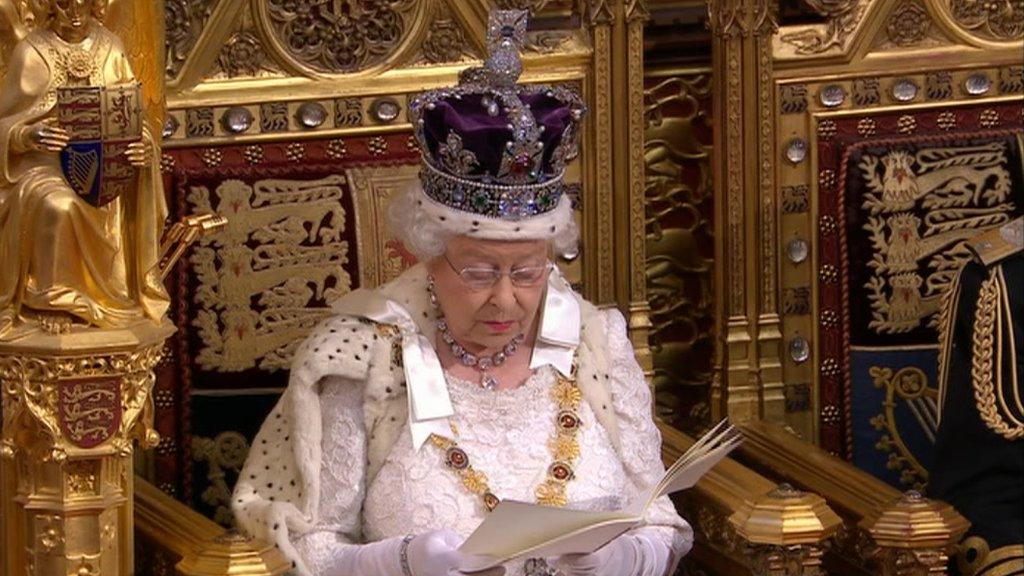
- Published14 May 2015

- Published12 May 2015
